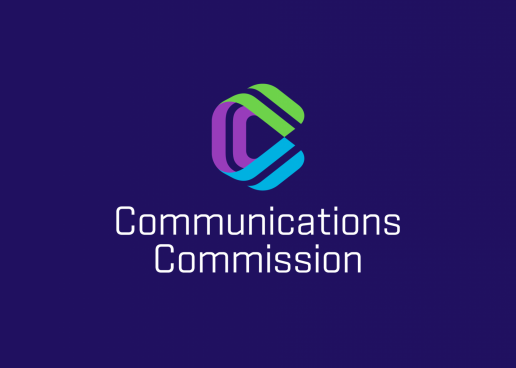Bullying and Threats against its Staff will not prevent the Communications Commission from enforcing the Law

The Communications Commission is issuing a statement regarding its decision to impose a financial penalty on Mtavari TV, which was followed by politicized comments and unsubstantiated accusations from the broadcaster.
Management of Mtavari TV is trying to mislead the public by claiming that the decision taken by the Commission on November 25, 2021 was aimed at curtailing the freedom of speech and freedom of expression. The claims of the broadcaster that the Commission had no legal basis for fining Mtavari TV are blatantly untrue. Statements made by representatives of Mtavari TV containing threats towards the members and employees of the Communications Commission are vehemently unacceptable. It is obvious that these statements are designed to interfere in the professional activities of our employees and discredit the Commission as a state institution. We would like to emphasize that such attempts will not prevent the Commission from enforcing the law and will not affect our decisions.
The Law of Georgia on National Regulatory Bodies prohibits unlawful interference or inappropriate influencing of the plans, beliefs, decisions, and activities of the national regulatory body. Unlawful interference and inappropriate influencing are defined as interference in, or influence on the outcome of ongoing discussions at the national regulatory body with the aim of deriving benefit or privileged treatment. The actions and statements of representatives of Mtavari TV contain signs of attempts at exerting inappropriate influence, which is =absolutely unacceptable.
The decision of November 25 of the Communications Commission is in line with the Georgian legislation and international practices, including the rulings of the European Court of Human Rights in Strasbourg.
We call on our international partners to closely monitor this process. All decisions of the Commission are open and accessible. Further, the Commission is ready to provide additional information to all interested parties on the standards and legal basis used. At the same time, we call on international organizations not to ignore the mass threats and bullying attempts made by the management of Mtavari TV against the independent regulator and its employees.
As a reminder, Mtavari TV aired political adverts in violation of the legislation at a time when the broadcaster was not allowed to air political advertising. The current legislation sets out in detail the time and conditions for broadcasting political adverts. More specifically, Article 50.1 and Article 761.21 of the Election Code of Georgia determines the exact intervals during which it is permissible to broadcast political adverts. According to the Code, political adverts may only be placed during the election period – starting 50 days before the vote and ending 8 hours before the vote. In case of a second round of voting being required, the period starts on the day the second round is set and ends 8 hours before the vote. This record clearly sets out the terms for broadcasting political advertising.
During the administrative proceedings, the Commission established that Mtavari TV had placed political adverts outside the election period. It is worth noting that the broadcaster has already committed such a violation for the fourth time in total, and for the second time in the last year. Therefore, in accordance with the legislation, the broadcaster was fined 1% of its annual income for this breach.
With regards to political advertising, the Communications Commission is guided by the Georgian legislation and international practice. According to Article 3.2 of the Law of Georgia on Broadcasting, the laws on broadcasting must be interpreted in line with the European Convention on Human Rights, the practices of the European Court of Human Rights, and other international legal norms that have legal power in Georgia.
One of the most visible examples of international practice is Ireland, where political advertising is completely banned. In 2016, the Broadcasting Authority of Ireland (BAI) ruled that an advert broadcasted on behalf of the Irish Wind Energy Association (IWEA) served political purposes. More specifically, the advert described the positive aspects of wind energy and the importance of its use for Ireland’s energy independence.
BAI ruled that the video clip aimed to criticize the energy policy of the Irish government, as it was placed during the preparatory period for the general elections. Thus, although wind energy and renewable energy are commercial issues, they were subject to discussion during the election period and were deemed to be political in nature.
There are numerous examples across Europe where local regulators have banned the distribution of political advertisements, including those prepared by non-political actors. Among them, there are those who subsequently passed the control of the Strasbourg court.
The objectives recognized by the European Court of Human Rights are served by the norms set by the Georgian legislation and their interpretation, based on which political advertising is prohibited outside the election period and is appropriately regulated during the election period, which balances the negative influence exerted by powerful groups, protects free pluralistic debates, and prevents polarization of the society.
Finally, the freedom of speech and expression is fully protected by the Georgian legislation. The Communications Commission as the country’s independent media regulatory body guarantees freedom of speech in Georgia and will continue to do so in spite of any politicized and unsubstantiated statements, accusations, or threats. It is precisely due to the country’s liberal media policy that Mtavari TV was able to become a national broadcaster in 5 days.










